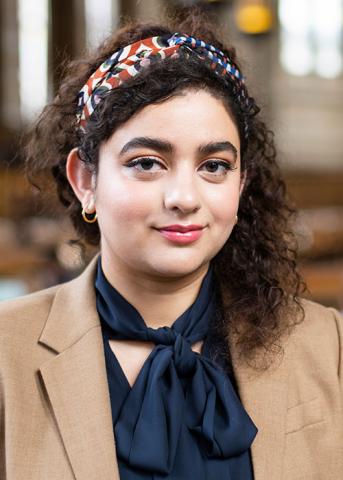What motivates you about public health?
My strongest convictions about equity and social justice are reflected in the field of public health. No child should be without life-saving vaccines, no girl should be forced into marriage at 15, no woman should die in childbirth. Such health and social issues require urgent action to address them. It’s this sense of urgency that motivates me.
What research are you working on?
I’m leading a study of child marriage declines in Rajasthan, India. Each year, 12 million girls are married before the age of 18, violating girls’ rights to health, education, safety and opportunity. Though the practice is declining, progress is slow and uneven. We aim to show what has worked to reduce child marriage and to inform strategy to accelerate progress.
Tell us about your work with the WHO.
I was in Geneva, Switzerland, this past year working with the Department of Reproductive Health and Research. In addition to the child marriage study, I led the development and analyses of new adolescent indicators for WHO country fact sheets, which will be a powerful advocacy tool to strengthen commitments to adolescent health in low- and middle-income countries. I also contributed to several publications, including two WHO Guidance documents on sexual and reproductive health.
Tell us about the Girls Not Brides global meeting in Kuala Lumpur, Malaysia.
The meeting brought together over 500 world leaders in child marriage work. I presented on the progress and priorities we have made in child marriage research over the last five years, and met with parliamentarians, researchers and activists committed to achieving the Sustainable Development target of ending child marriage by 2030.
It was inspiring to connect with girls who had escaped child marriage and to learn how they are challenging the circumstances that oppressed them. One woman from Bangladesh ran away from home for a short period at the age of 13 because of a forced marriage to someone 20 years her senior. Now she is a youth advocate for girls’ education in her community.
Why did you choose the UW?
It’s a top ranked research university with a strong international presence in public health. My first glimpse of this was at an APHA annual meeting I attended before applying. The presentations I was most excited about were all by UW faculty and students. I was eager to learn from and work with the leading experts in my field.
Why did you choose COPHP?
A close mentor of mine was an alumna of the program. She brought a critical, social justice-oriented thinking to the classroom that I really appreciated. When I discovered the program’s rigorous problem-based learning methodology, I knew it was the right choice.
For those who are not familiar, what is problem-based learning?
It involves students taking on the role of problem solvers and decision makers, delving deep into complex cases that reflect real-world public health issues. It’s an active style of learning, where high-energy discussions take the place of passive lectures. Many top business schools use a similar approach, but to see it in public health education is cutting edge.
What experiences at the UW have been most influential?
As a teaching assistant for a Population Health course, I got to work with undergraduates from diverse backgrounds. They each brought a unique perspective and I enjoyed getting to know them.
What about your own mentors?
COPHP Director Amy Hagopian is someone I have long admired since I became interested in the effects of war on global health. She inspires me to use my scholarship to inform my activism for justice and equity. She also creates a welcoming community for students. Her warmth and approachability is something I would like to emulate.
My current advisor, Donna Denno, also inspires me. She is a pediatrician and an expert in the field of adolescent and child health. I have learned so much from her, first as a student and now as a collaborator.
What are your future goals?
My career goal is to enhance knowledge, research and policy as a global health scientist, physician and policymaker. I aim for training that will prepare me to work at every level of health promotion, so that I can make a difference in the lives of vulnerable populations.
What other jobs or volunteer work do you do?
I’m currently working as a consultant for the WHO. I also tutor the children of a Syrian refugee family from my local mosque.
Any hobbies or extracurricular activities?
I enjoy trying new Pakistani recipes, usually with my mom on the phone guiding me step by step. Last year, my professor invited our class to her home for dinner. I taught everyone how to make samosas.
What advice would you give prospective students?
Take advantage of the wealth of experiences, knowledge and expertise available to you at the UW. Nurture your passions every step of the way, from the courses you take to the capstone projects you choose. Cultivate a collaborative spirit and be prepared to be a strong team player. Do not neglect your personal health as you take on the rigors of graduate school. Many of us forget that student well-being is also a public health issue.
What do you like most about Seattle?
The serene water and mountain views combined with the sparkling Seattle skyline. It’s the perfect backdrop to life.

